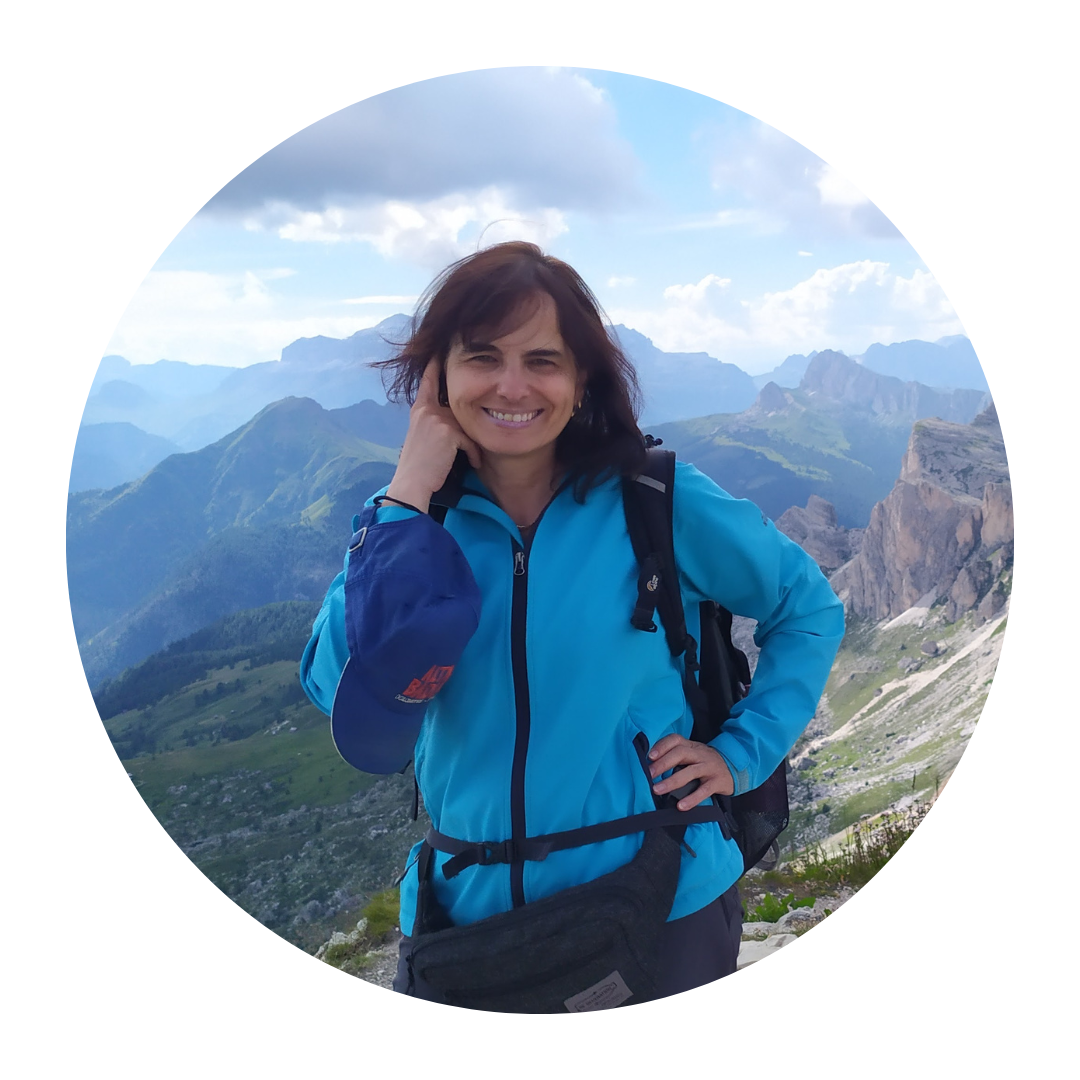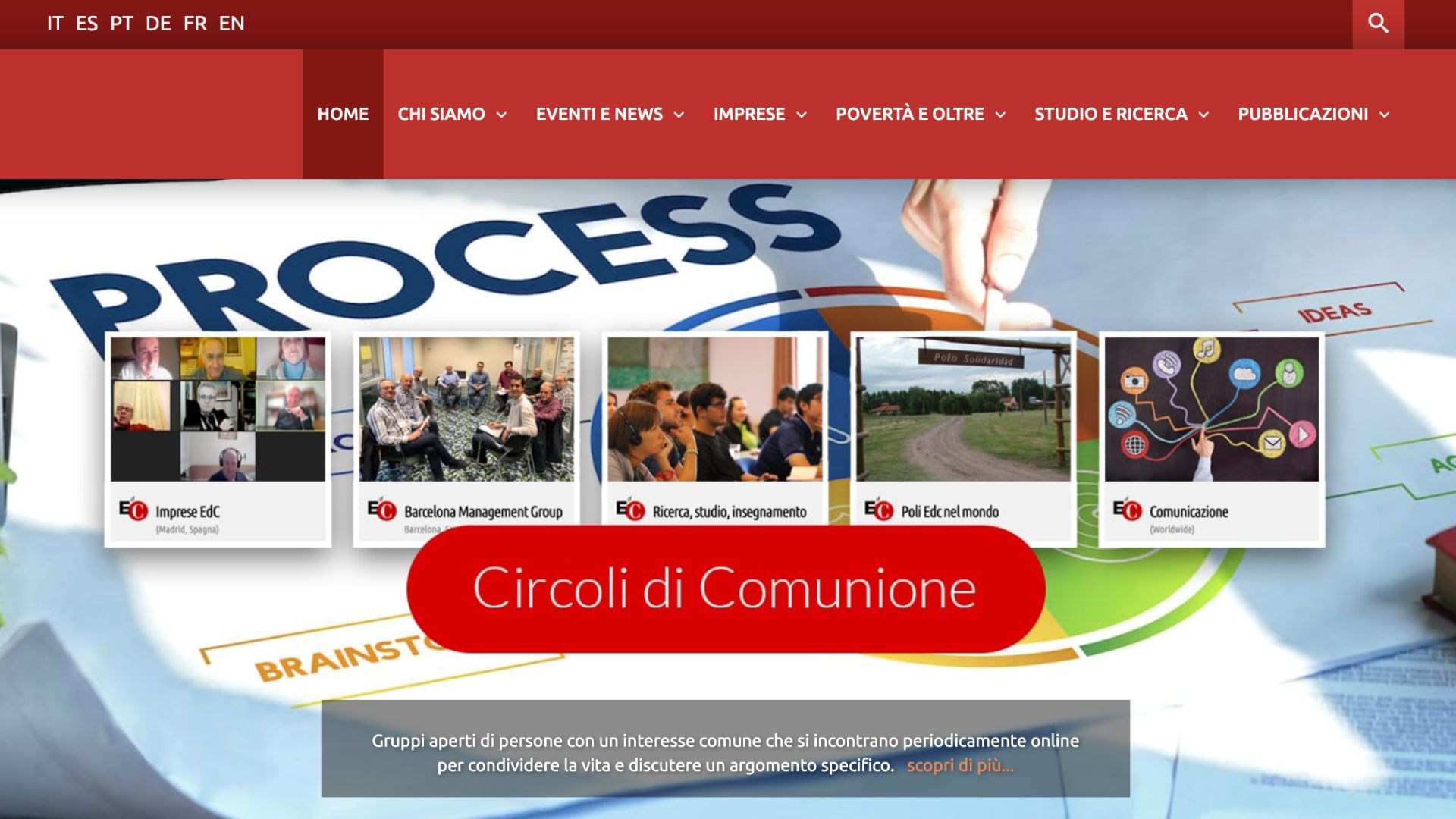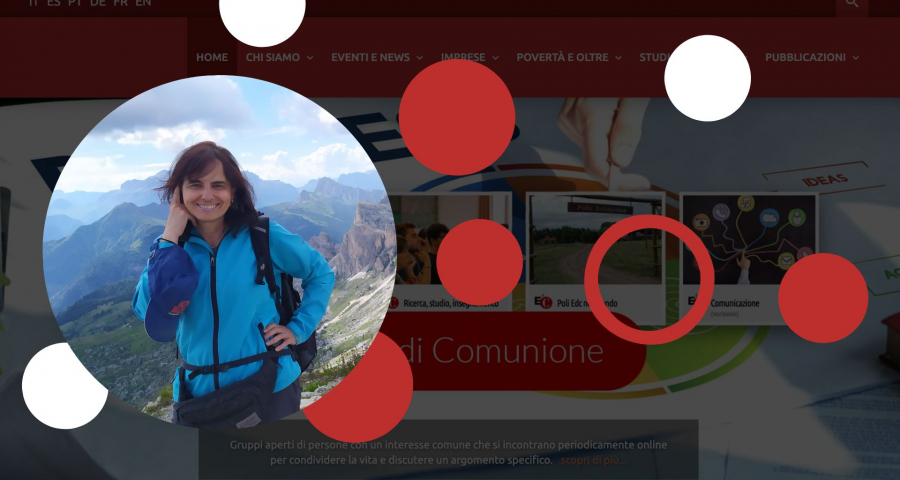Antonella Ferrucci has been editing the official Economy of Communion website for 15 years. The site is available in five languages and contributes to the dissemination of the culture of giving, civil economy and economy of communion, with testimonies of the lives of EoC entrepreneurs, some more academic content, and also stories, articles and news.
An interview by Lourdes Hércules
To find out more about what the EoC site represents at the moment, we had a chat with Antonella...

“The edc-online.org website is intended to be a window on the world of the Economy of Communion and on all the realities that the EoC has generated over the years and to which it is still naturally very, very attached. So on the one hand the site aims to keep people w
ho are close to the EoC world informed about all the realities of the Economy of Communion and the realities connected to it, and on the other hand it wants to be a place where those who want to learn about the Economy of Communion can find answers to their questions.”
How is the EoC site structured? What can we find on it?
“The Economy of Communion website is quite complex and consists of several sections. Of course, there are pages related to the events and news from the EoC world and all the realities connected to it; then we have a blog section where we publish articles by our economists, with a very substantial page with articles by Luigino Bruni and another, featuring a similarly big collection of articles by Vittorio Pelligra (the latter one is not yet available in English – the tr.).
Then we have an important section on the EoC businesses that I personally am very fond of, because it offers a collection of the life experiences of the Economy of Communion entrepreneurs. I must admit that I like it very much; I think it contains the most original content on the site because objectively the experiences of entrepreneurs are often bordering on the extraordinary.
Then we have a part dedicated to poverty and here you can find content coming from our Leo Andringa Observatory of Poverty (OPLA), which was created to understand what the Economy Communion's particular view is on poverty and ways to try – in some way – to solve it. The poverty menu also contains a page dedicated to the NGO AMU, Azione per un Mondo Unito (Action for a United World), which is the vehicle through which the profits of EoC entrepreneurs are directly allocated to development projects in various countries around the world.

Worth mentioning is the menu dedicated to scholarship where we can find news of various realities, also close to or sprouting from the Economy of Communion, such as the Scuola dell'Economia Civile (School of Civil Economy – available only in Italian – the tr.) or the Scuola dell'Economia Biblica (School of Bible Economy – available only in Italian – the tr.). Lastly, there is a section dedicated to the books and one where we collect videos and podcasts. In short, there is really, really a lot of material on the EoC site, and it is a site that is constantly updated – we have new posts almost every day – and its contents are available in five languages: we would like to make EoC life reach the whole world as much as possible.”
Who works on the site and how does it function?
“I am the one who works mainly on the EoC site, but I also make use of a whole series of collaborations and contacts with the various EoC realities of the world, built up over the past 15 years in what now is a small but vivid community. For example, we have a long-standing relationship with Brazil through a collaborator who works both for the site and for the Brazilian EoC association Anpecom. We have translators, people who insert translations on a voluntary basis, authors from whom we ask for specific articles on current events or initiatives on various occasions. We try to translate as much as possible into the five languages of the website: it is quite a demanding job and our attempt is to have an overview of the whole EoC network worldwide. Of course, we are always hoping that this network will be enriched and that the contacts will become more and more, with a view to constant improvement.”









